|
Books Should Be Free Loyal Books Free Public Domain Audiobooks & eBook Downloads |
|
|
Books Should Be Free Loyal Books Free Public Domain Audiobooks & eBook Downloads |
|
Tragedies |
|---|
Book type:
Sort by:
View by:
|
By: Leo Tolstoy (1828-1910) | |
|---|---|
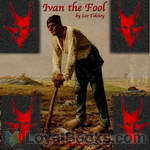 Ivan the Fool
Ivan the Fool
Written after Tolstoy suffered a spiritual crisis, Ivan the Fool is a fairy tale that offers children instruction in how to live rightly, simply, and generously. The story emphasizes the destructive aspects of materialism and militarism while idealizing manual labor and the peasant life. (Introduction by Dorlene Kaplan) | |
By: William Shakespeare (1564-1616) | |
|---|---|
 Romeo and Juliet
Romeo and Juliet
William Shakespeare’s most well-known play is more than most people realize. While it is the story of star-crossed lovers, Romeo and Juliet, it is also the story of two families in the middle of a bitter feud. Many people avoid the story because they believe it will be too difficult to read, but this is not true at all. Within a few paragraphs, the play captures your imagination and attention. Juliet is 13 years old and is love with the son of her father’s enemy. Her father has promised that she will marry another boy when it is time, but she refuses to accept the suit... | |
 King Lear
King Lear
Considered to be one of Shakespeare's greatest plays, the tragedy King Lear portrays some of the darkest aspects of human nature that can be found in literature. The helplessness of the human condition, as we fall prey to our destinies, the injustice and random cruelties practiced by people, suffering and humiliation, the lust for power and the greed for wealth are all depicted in this magnificent play. And through it all, runs the golden thread of love and sacrifice, daughterly affection and the true nature of our relationship with our parents... | |
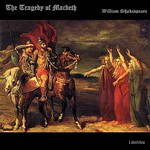 The Tragedy of Macbeth
The Tragedy of Macbeth
Right from its famous opening scene which begins, “Thunder and lightning. Enter Three Witches” The Tragedy of Macbeth by William Shakespeare holds the reader fast in a stirring, monumental experience that plumbs the depths of the human soul and reveals its most morbid secrets. The play is set in medieval Scotland. It is based partly on historical facts and recounts the tale of Macbeth, who was a king in Scotland, according to The Holinshead Chronicles, a book published in 1577. This book was extensively used by contemporary playwrights like Shakespeare and Marlowe as inspiration for their themes, characters and events... | |
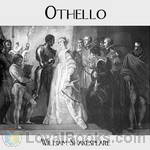 Othello
Othello
In seventeenth century Venice, a wealthy and debauched man discovers that the woman he is infatuated with is secretly married to a Moorish general in the Venetian army. He shares his grief and rage with a lowly ensign in the army who also has reason to hate the general for promoting a younger man above him. The villainous ensign now plots to destroy the noble general in a diabolical scheme of jealousy, paranoia and murder, set against the backdrop of the bloody Turkish-Venetian wars. This timeless tale, Othello The Moor of Venice was one of the ten famous tragedies that William Shakespeare wrote... | |
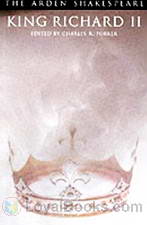 King Richard II
King Richard II
The Tragedy of King Richard II, by William Shakespeare, is the first of the history series that continues with Parts 1 and 2 of King Henry IV and with The Life of King Henry V. At the beginning of the play, Richard II banishes his cousin Henry Bolingbroke from England. Bolingbroke later returns with an army and the support of some of the nobility, and he deposes Richard. Richard is separated from his beloved Queen, imprisoned, and later murdered. By the end of the play, Bolingbroke has been crowned King Henry IV... | |
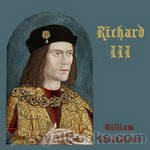 Richard III
Richard III
Richard III is an early history play probably written and performed around 1592-93. It is the culmination of Shakespeare's earlier three plays about Henry VI, and chronicles the bloody career of Richard, Duke of Gloucester. As the play opens, the Wars of the Roses are over, King Edward IV (Richard's brother) is on the throne, and all is ostensibly well. The problem? Richard wants to be king - and he'll stop at nothing to realize his ambition. | |
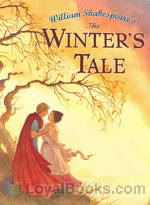 The Winter's Tale
The Winter's Tale
Mad with jealousy, King Leontes of Sicilia orders his best friend Polixenes killed, his child abandoned, and his wife put on trial for adultery. Sixteen years later, Perdita, raised as a shepherd's daughter, falls in love with Polixenes's royal son and returns to her father's kingdom. | |
 Titus Andronicus
Titus Andronicus
Titus Andronicus may be Shakespeare's earliest tragedy; it is believed to have been written in the early 1590s. It depicts a Roman general who is engaged in a cycle of revenge with his enemy Tamora, the Queen of the Goths. The play is by far Shakespeare's bloodiest work. It lost popularity during the Victorian era because of its gore, and it has only recently seen its fortunes revive. | |
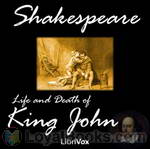 King John
King John
The Life and Death of King John, a history play by William Shakespeare, dramatises the reign of John, King of England (ruled 1199–1216), son of Henry II of England and Eleanor of Aquitaine and father of Henry III of England. It is believed to have been written in the mid-1590s but was not published until it appeared in the First Folio in 1623. John (24 December 1166 – 19 October 1216), also known as John Lackland or Softsword, was King of England from 6 April 1199 until his death. His reign... | |
By: Homer | |
|---|---|
 The Iliad
The Iliad
A divinely beautiful woman who becomes the cause of a terrible war in which the gods themselves take sides. Valor and villainy, sacrifices and betrayals, triumphs and tragedies play their part in this three thousand year old saga. The Iliad throws us right into the thick of battle. It opens when the Trojan War has already been raging for nine long years. An uneasy truce has been declared between the Trojans and the Greeks (Achaeans as they're called in The Iliad.) In the Greek camp, Agamemnon the King of Mycenae and Achilles the proud and valiant warrior of Phthia are locked in a fierce contest to claim the spoils of war... | |
By: Oscar Wilde (1854-1900) | |
|---|---|
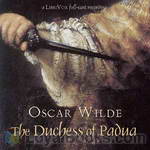 The Duchess of Padua
The Duchess of Padua
Guido Ferranti, a young man, travels to Padua with his friend Ascanio after receiving a mysterious letter from a stranger, claiming to know the true secret of Guido's birth. His plan of revenge goes awry, however, when he falls in love with his enemy's beautiful wife, the Duchess of Padua. | |
By: Joseph Conrad (1857-1924) | |
|---|---|
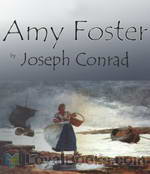 Amy Foster
Amy Foster
Classic shortish story by Conrad that relates his self-thought alienation from British society, as a young foreign man survives a shipwreck off the coast of Kent, England only to be shunned by most of the townsfolk. The one exception is the loving, if dull-witted, Miss Foster. | |
By: Mary Wollstonecraft Shelley (1797-1851) | |
|---|---|
 Mathilda
Mathilda
The finished draft of a short novel by Mary Shelley. Its adult theme, concerning a father’s incestuous love for his daughter and its consequences, meant that the manuscript was suppressed by Shelley’s own father, and not published until 1959, more than a hundred years after her death. Summary by Cori Samuel | |
By: Wilkie Collins (1824-1889) | |
|---|---|
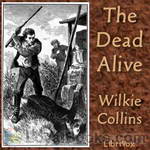 The Dead Alive
The Dead Alive
Ill feelings exist between the Meadowcroft sons and John Jago, the foreman of the Meadowcroft estate. Then, John Jago disappears, and a body is found in a kiln. The Meadowcroft brothers stand accused of the crime, but are they guilty? The Dead Alive is a novel written by Wilkie Collins based on the true-life Boorn Brothers murder conviction case of 1819. Jesse and Stephen Boorn were sentenced to death for the murder of their brother-in-law, but were they wrongly convicted? | |
By: John Milton (1608-1674) | |
|---|---|
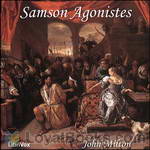 Samson Agonistes
Samson Agonistes
“The Sun to me is darkAnd silent as the Moon,When she deserts the nightHid in her vacant interlunar cave.”Milton composes his last extended work as a tragedy according to the classical Unities of Time, Place and Action. Nevertheless it “never was intended for the stage” and is here declaimed by a single reader.Samson the blinded captive, in company with the Chorus of friends and countrymen, receives his visitors on their varying missions and through them his violent story is vividly recalled... | |
By: Johann Wolfgang von Goethe (1749-1832) | |
|---|---|
 The Sorrows of Young Werther
The Sorrows of Young Werther
The Sorrows of Young Werther (German, Die Leiden des jungen Werther, originally published as Die Leiden des jungen Werthers) is an epistolary and loosely autobiographical novel by Johann Wolfgang von Goethe, first published in 1774. The story follows the life and sorrows of Werther after he falls desperately in love with a young woman who is married to another. A climactic scene prominently features Goethe's own German translation of a portion of James Macpherson's Ossian cycle of poems, which had originally been presented as translations of ancient works, and was later found to have been written by Macpherson. (Introduction by Wikipedia and Barry Eads) | |
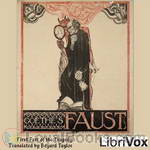 Faust, Part 1
Faust, Part 1
Faust is the protagonist of a classic German legend; a highly successful scholar, but also dissatisfied with his life, and so makes a deal with the devil, exchanging his soul for unlimited knowledge and worldly pleasures.Johann Wolfgang von Goethe's Faust is a tragic play in two parts. It is Goethe's most famous work and considered by many to be one of the greatest works of German literature.This first part of Faust is not divided into acts, but is structured as a sequence of scenes in a variety of settings. After a dedicatory poem and a prelude in the theatre, the actual plot begins with a prologue in Heaven and Scene 1 in Faust's study. | |
By: D. H. Lawrence (1885-1930) | |
|---|---|
 The Prussian Officer and Other Stories
The Prussian Officer and Other Stories
The collection of short stories – of which The Prussian Officer is one – was Lawrence’s first such book. A German officer and his orderly are the focus of the piece and, while socially the superior of his orderly, the officer demonstrates his is the distinctly baser character. (Introduction by Cathy Barratt) | |
By: Edgar Lee Masters (1868-1950) | |
|---|---|
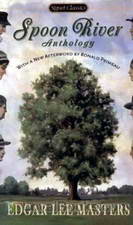 Spoon River Anthology
Spoon River Anthology
Two hundred and twelve residents of a small town tell their stories without fear of recrimination or ridicule. The only difference is that they're all dead! The two hundred and forty-four poems that form the Spoon River Anthology by Edgar Lee Masters is really a series of epitaphs about the citizens of a fictional town called Spoon River and deals with the “plain and simple annals” of small town America. Edgar Lee Masters grew up in a small town in Illinois. His father's financial problems forced the young Masters to abandon ideas of college and take up a job instead... | |
By: John Galsworthy (1867-1933) | |
|---|---|
 Skin Game
Skin Game
A small play in three acts. A kind of comic tragedy. The plot tells the story of the interaction between two very different families in rural England just after the end of the First World War. Squire Hillcrist lives in the manor house where his family has lived for generations. He has a daughter, Jill, who is in her late teens; and a wife, Amy, as well as servants and retainers. He is "old money", although his finances are at a bit of low ebb. The other family is the "nouveau riche" Hornblowers,... | |
By: Gustave Flaubert (1821-1880) | |
|---|---|
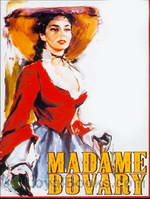 Madame Bovary
Madame Bovary
The strands woven together in Gustave Flaubert's famous, path breaking 1856 novel Madame Bovary include a provincial town in Normandy, France, a shy young doctor with an indifferent career and a lovely young woman who lives in a fantasy world based on the innumerable romantic novels she reads. Of course there is also the story of a dull marriage punctuated by passionate, adulterous love affairs. First published in serial form in a Parisian magazine and deemed to be the “perfect” novel, Flaubert's debut was received by both readers and critics with acclaim and admiration... | |
By: Aeschylus (c. 525/524-456/455 BC) | |
|---|---|
 Prometheus Bound (Browning Translation)
Prometheus Bound (Browning Translation)
Whether or not it was actually written by Aeschylus, as is much disputed, "Prometheus Bound" is a powerful statement on behalf of free humanity in the face of what often seem like the impersonal, implacable Forces that rule the Universe. As one of the most compelling rebel manifestos ever composed, it has appealed not only to the expected host of scholars of Greek drama, but also to a fascinatingly free-spirited array of translators, especially since the early 19th century; Percy Bysshe Shelley, Henry David Thoreau, and activist-poet Augusta Webster are among those who have tried their poetic and linguistic powers at rendering it into English... | |
By: Percy Bysshe Shelley (1792-1822) | |
|---|---|
 Zastrozzi, A Romance
Zastrozzi, A Romance
“Would Julia of Strobazzo’s heart was reeking on my dagger!”From the asthmatic urgency of its opening abduction scene to the Satanic defiance of the villain’s departure “with a wild convulsive laugh of exulting revenge”, this first of Shelley’s Gothic novelettes recycles much sensational boyhood reading and also points to some of his more mature concerns.It is the ego-driven pursuit of passionate extremes, revenge included, which consigns figures like Zastrozzi and the murderous Matilda to an isolation which is socially destructive as well as self-annihilating... | |
By: Charles Morris (1833-1922) | |
|---|---|
 The San Francisco Calamity by Earthquake and Fire
The San Francisco Calamity by Earthquake and Fire
The first half of this book describes the devastating earthquake that hit San Francisco in 1906, and the subsequent destruction caused by fire. Various eyewitnesses and victims give their account on the tragedy. In the second half, a number of different other earthquakes and volcanic eruptions are retold, like the eruption of the Vesuvius that destroyed Pompeij or the explosion of the Krakatoa, together with scientific explanations for the causes of earthquakes and the eruption of volcanos. | |
By: Henrik Ibsen | |
|---|---|
 A Doll's House
A Doll's House
Nineteenth century attitudes towards marriage, the role of women, morality and the search for identity are brilliantly explored in Henrik Ibsen's three act play, A Doll's House. It was highly controversial and received with a sense of outrage among opinion leaders in Europe. Many thinkers like August Strindberg lashed out at Ibsen for portraying the sacred institution of marriage in such a derogatory way. A Doll's House, written in the original Danish, was first performed at the Royal Theater in Copenhagen in 1879... | |
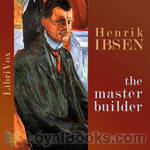 The Master Builder
The Master Builder
Henrik Ibsen's The Master Builder, first published in 1892, is about architect Halvard Solness, who despite personal tragedy (including the death of his two sons) has risen to the top of his profession. He has succeeded partly through ruthless competition and exploitation and partly through a seeming ability to force his will on others. His unhappy wife Aline mourns for their lost life, and resents his interest in various young women, including his bookkeeper Kaia Fosli. Solness disregards the ambitions of other architects, including Knut Brovik and his son Ragnar, and seeks solace in the advice of family physician and friend Dr... | |
 Little Eyolf
Little Eyolf
Henrik Ibsen's 1894 play Little Eyolf tells the story of the Allmers family: the father, Alfred, his wife Rita, their crippled nine-year-old son Eyolf, and Alfred's sister Asta. As the play begins, Alfred has just gotten back from a trip to the mountains, and resolves to spend more time with his son, rather than on intellectual pursuits. Asta is romantically pursued by Borgheim, an engineer, while the cracks in Alfred and Rita's marriage gradually reveal themselves. The family receives a visit from the Rat-Wife, and are never the same again. | |
 When We Dead Awaken
When We Dead Awaken
When We Dead Awaken (1899) is the last play by Norwegian dramatist Henrik Ibsen. Dreamlike and highly symbolic, the play charts the dissolution of sculptor Arnold Rubek's marriage to Maia, her flirtation with Ulfheim, and his involvement with the mysterious Irene, his former model. The tensions rise between the characters as they climb higher and higher into the Norwegian mountains. | |
By: Émile Zola (1840-1902) | |
|---|---|
 L'Assommoir
L'Assommoir
Émile François Zola (French pronunciation: [emil zɔˈla]) (2 April 1840 – 29 September 1902) was an influential French writer, the most important exemplar of the literary school of naturalism. More than half of Zola’s novels were part of a set of twenty novels about a family under the Second Empire collectively known as Les Rougon-Macquart. L’Assommoir (1877) is the seventh novel in the series. Usually considered one of Zola’s masterpieces, the novel—a harsh and uncompromising study of alcoholism and poverty in the working-class districts of Paris—was a huge commercial success and established Zola’s fame and reputation throughout France and the world. | |
By: Friedrich Schiller (1759-1805) | |
|---|---|
 Mary Stuart
Mary Stuart
Schiller's tragedy depicts the final days of Mary, Queen of Scots, who has been imprisoned by her cousin, Queen Elizabeth I, because of her potential claim on the English throne. The action of the play revolves around an attempt to rescue Mary from prison and Elizabeth's indecision over whether or not to have her executed. The 1801 translation is by Joseph Mellish, a friend of Schiller's. | |
 Love and Intrigue
Love and Intrigue
Ferdinand is an army major and son of President von Walter, a high-ranking noble in a German duke's court, while Luise Miller is the daughter of a middle-class musician. The couple fall in love with each other, but both their fathers tell them to end their affair. The President instead wants to expand his own influence by marrying Ferdinand to Lady Milford, the duke's mistress, but Ferdinand rebels against his father's plan and tries to persuade Luise to elope with him. | |